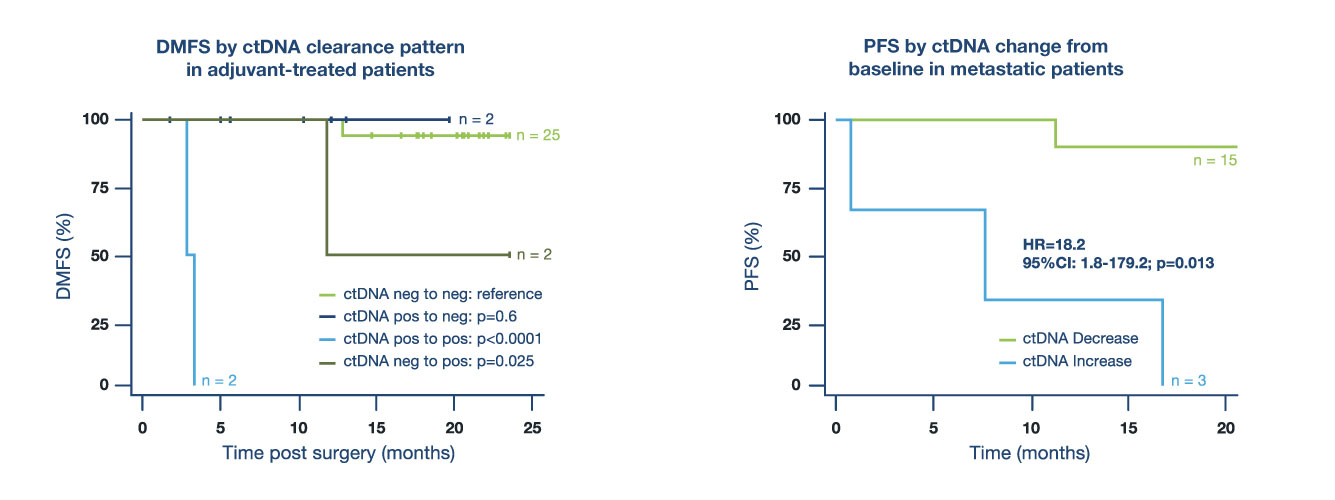The presence of ESMO 2024 at Barcelona promises to be marked by significant advances in the field of oncology. Among the interesting innovations, Natera stands out by presenting the benefits of the test cDNA, a tool that could revolutionize our understanding ofeffectiveness of chemotherapy. By exploring the mechanisms underlying therapeutic response, this test offers an unprecedented opportunity to personalize treatments and improve outcomes for cancer patients.
|
IN BRIEF
|
Introduction to ESMO 2024
ESMO 2024, which will be held in Barcelona from September 13 to 17, promises to be a landmark event in the field of oncology. Among the many innovations presented, Natera will highlight its test cDNA, a significant advance in predicting the effectiveness of chemotherapy. This tool could transform the cancer treatment landscape by offering personalized solutions to patients.
The challenges of chemotherapy
Chemotherapy remains a mainstay in the treatment of cancer, but it is not without side effects. Each patient responds differently to medications, making it difficult to predict treatment effectiveness. This is where Natera’s cDNA test comes in, which could provide valuable insights to tailor treatments to each individual.
What is the cDNA test?
The cDNA test, based on molecular biology, allows the genetic profiles of tumors to be analyzed. By sequencing circulating DNA, this test identifies genetic abnormalities and helps predict how a patient may respond to a given chemotherapy. This could mean less ineffectiveness and less toxicity for patients who receive inappropriate treatments.
The benefits of cDNA testing for oncologists
For oncologists, the cDNA test does not only represent a technological advance. It also opens avenues towards more effective and targeted therapeutic options. Using this data, doctors can formulate treatment strategies that take into account the unique characteristics of each patient’s tumor, thereby increasing the chances of therapeutic success.
Expected results from ESMO 2024
During ESMO 2024, Natera will present evidence regarding the effectiveness of its cDNA test. Studies will be revealed, highlighting the ability of this test to predict responses to chemotherapeutic treatments. This could encourage clinicians to adopt more personalized approaches in their daily practices.
Conclusion on the impact of the cDNA test
By integrating cDNA testing into clinical practice, oncologists could see a significant improvement in how they manage the treatment of their cancer patients. With advances like this, the future of oncology looks bright, and ESMO 2024 is shaping up to be an essential platform to discuss these crucial innovations.
Cancer de Kate Middleton : en quoi consiste la chimiothérapie préventive préconisée par ses médecins ?
— LCI (@LCI) March 23, 2024
➡️ https://t.co/caVKvW8peL pic.twitter.com/KiPudqeppN
THE ESMO Congress 2024, which will be held at Barcelona of September 13 to 17, 2024, is shaping up to be an unmissable event for oncology professionals. Among the many innovations presented, Natera will highlight the advantages of the test cDNA to predict the effectiveness of chemotherapy.
This revolutionary test is based on genetic analyzes which make it possible to evaluate the potential response of patients to treatments. By measuring specific biomarkers, Natera can provide a clearer view of the effectiveness of administered treatments, which could significantly change the way chemotherapy is discussed and implemented.
The data provided will not only personalize therapies, but also avoid unnecessary side effects in patients less likely to respond to traditional treatments. The ability to quickly identify patients who will benefit most from chemotherapy could increase the quality of care and optimize the medical resources.
Natera’s session at the ESMO congress promises to be a highlight. Health professionals will be able to discover the results of this innovative research, which could have a significant impact on future treatment protocols. Furthermore, these advances take place in a context where the medical precision takes an ever more central place in the treatment of cancers.
The congress therefore represents an excellent opportunity to discuss innovations, challenges and perspectives in the field of oncological research. As we prepare for this scientific gathering, the excitement around the work of Natera and other contributors has never been greater.














